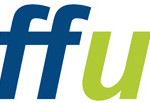How about flattening the curve also on CLIMATE and ENVIRONMENT? Less fossil fuels, more renewables, more energy efficiency, less cars, less flights, more bikes, more electric public transport, less conventional farming, less meat, more local and organic farming, more organic, regional, seasonal and fresh food, less destruction of green urban spaces, less destruction of environment, less destruction of biodiversity, less waste, less food waste, less plastic, less pullution, less imports and exports, less consumption, less acceleration, more local and sustainable production, more circular economy, more resource efficiency, more sustainable and smart urbanization, more deceleration, better quality of life…
Category Archives: Environmental policy
Article about the reform of the German renewable energy law available on-line
 My article “Obywatelska Energiewende zagrozona” published in Zielone Wiadomosci [Green News] March – April 2014 Nr. 19 (2/2014) has been also published on the website of “Green News”, you may read it here.
My article “Obywatelska Energiewende zagrozona” published in Zielone Wiadomosci [Green News] March – April 2014 Nr. 19 (2/2014) has been also published on the website of “Green News”, you may read it here.
I will be scientific assistant for energy policy in the parliamentary group of the Pirate Party in the Berlin Chamber of Deputies
In August I start working for the Pirate Party’s parliamantary group in the Berlin Chamber of Deputies as a scientific assistant for energy policy, with focus on the Enquete-Commission “Neue Energie für Berlin – Zukunft der energiewirtschaftlichen Strukturen” [New Energy for Berlin – the future of the energy industry structures]. I am so excited about the challenge we are going to handle in Berlin – transition to renewables and more energy democracy! I hope for a good and fruitful cooperation with all involved in this process! I will publish soon more information about my new work and the work of Enquete-Commission.
Speech during the Intensive Programme of the MA in Euroculture “European Environments: How a New Climate is Changing the Old World”
The Intensive Programme of the MA in Euroculture â€European Environments: How a New Climate is Changing the Old Wolrd†is going to take place at the Jagiellonian University in Cracov from 22 to 29 June. I am going to give a speech during the opening panel: “The Climate of European Politics”. The title of my speech is: “Bringing energy to the people: what Poland, Europe and the world really needâ€.
Some European states and the European Union are widely seen as leaders in global environmental issues. Various European states have gone furthest in moving toward sustainable energy policies; EU environmental standards are among the most stringent in the world. But the politics surrounding climate change are highly complex. Within Europe, there are wide differences among European states’ responses to environmental change, and in how voters and political leaders perceive the issue. Increased public awareness of the dangers of climate change does not seem fundamentally to have changed voting behavior on the national or European level. On the global level, complex issues of political, economic, and soft power make it unclear whether the EU is really able to offer global leadership in promoting sustainable development.
Here students are invited to explore the issues and themes in which European integration, international politics, and global environmental issues meet and intersect. How does climate change affect the EU’s relations with, for example, China, Russia, Brazil, or the United States? How is the warming of the Arctic (raising the prospect of ice-free summers in the near future) affecting European energy, security, and trade policy? Are there European success stories like international cooperation in cleaning up the Rhine, or the development of European emission standards that can inspire transnational environmental cooperation elsewhere? Or does Europe’s current crisis undermine the Union’s ability to take up a leadership role? Does the rest of the world even want such leadership? Within the EU, can environmental crisis be a force that deepens European integration, or only a further strain on the Union? How, for example, will the EU respond to the expected influx of so-called climate refugees, driven from their homes by rising sea levels or desertification? What links Europe’s financial crisis and the crisis of European institutions to the problems of climate change? Could so-called ecological economics offer fresh solutions to the crisis of the eurozone? Finally, how can we best understand the interplay of local, national, European, and global forces that drive European governments’ responses (or lack thereof) to ecological concerns?
More information about the conference as well as its programme are available on the website of the Intensive Programme of the MA in Euroculture.
Conference “The EU Renewable Energy Policy: Challenges and Opportunities”
 The conference is going to take place at the Free University of Berlin on 9 May. The title of my conference paper and presentation is: “Poland at the energy policy crossroads – a superficial Europenization?”.
The conference is going to take place at the Free University of Berlin on 9 May. The title of my conference paper and presentation is: “Poland at the energy policy crossroads – a superficial Europenization?”.
The organizer, the Forschungszentrum für Umweltpolitik (FFU) [Environmental Policy Research Centre] at the Free University of Berlin, about the conference:
Das Forschungszentrum für Umweltpolitik (FFU) der Freien Universität Berlin organisiert mit finanzieller Unterstützung der Fritz Thyssen Stiftung eine Konferenz zum Thema “The EU renewable energy policy: challenges and opportunities”. In der Konferenz gehen junge AkademikerInnen aus dem Bereich der Umwelt- und Energiepolitik der Frage nach, wie und in welchem Ausmaß die erneuerbare Energien-Politik der EU die nationalstaatliche Ebene beeinflusst und damit die Transformation der Mitgliedsstaaten in Richtung eines nachhaltigen, auf erneuerbaren Energien basierenden Energieversorgungssystems vorangetrieben hat.
More information about the conference as well as its programme is available on the website of the FFU.
